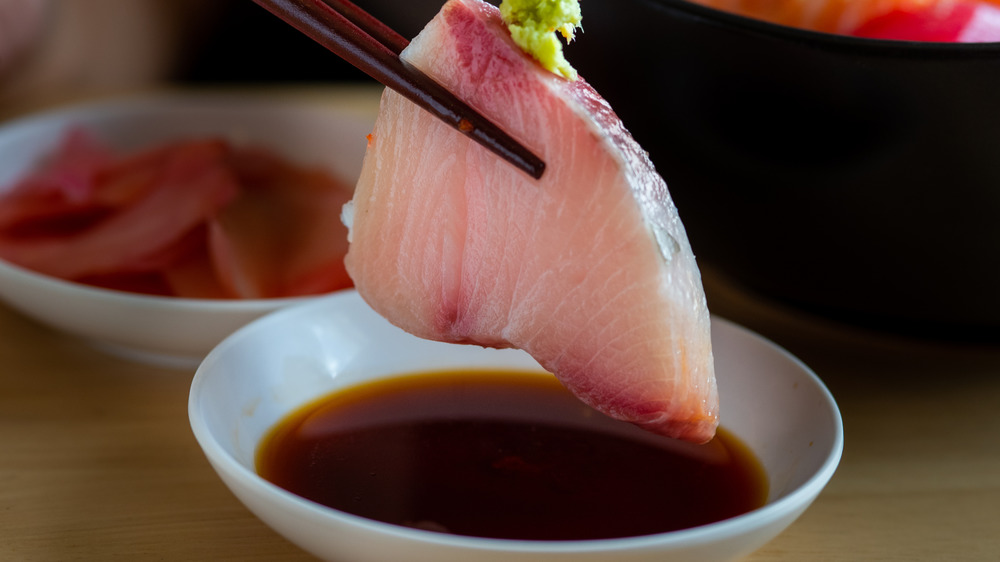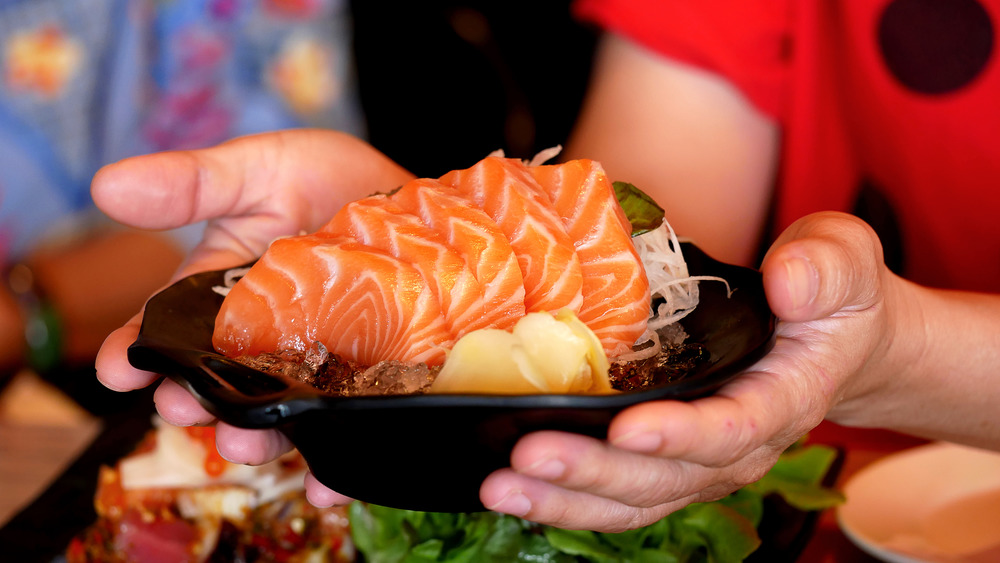Why You Should Think Twice About Ordering Sashimi
We may receive a commission on purchases made from links.
Sushi is a dare, is it not? Sure, you can find it in the grocery store these days, and it looks pretty fun and harmless when it comes in one of those cute bento boxes. But let's get real: many sushi options involve eating raw fish. True, it's not a tremendous amount of fish – all of that sweet, vinegar-soaked white rice, seaweed, cooked fish, and add-ons like spicy mayo sauce and tempura flakes often make up the bulk of your meal, notes Today I Found Out. But what about sashimi? This delicacy is exclusively raw fish. So, if sushi is daring, sashimi would seem to be the dining-out version of sky-diving! But shouldn't sashimi be safe to eat, if reputable restaurants offer it?
Actually, when it comes to sashimi, you really should slow your roll, according to award-winning food safety and nutrition expert Toby Amidor. In an interview with Mashed, she confirmed that sashimi is indeed as risky as it seems. "Eating raw fish can increase the risk of a food-borne illness," explained Amidor, who is the author of the Wall Street Journal best-seller, The Best 3-Ingredient Cookbook.
Some people should never eat sashimi, expert says
Because you can get sick from parasites that live in raw fish, sashimi is too much of a risk for people with certain health conditions, according to Amidor, including "those who are more susceptible of illness, including kids under the age of six years, pregnant and nursing women, older adults, and people with a weakened immune system."
If you are going to take a risk on sashimi, be choosy about where you buy it. "It is important to purchase fish and seafood–or your sashimi–from a reputable supplier who uses sushi-grade fish that has been sliced and frozen properly to help minimize the risk of parasites," Amidor pointed out. And you're not off the hook just because you got the fish from a trustworthy source – you also need to be extremely careful while you're preparing or serving anything that's raw, she added. "Due to cross-contamination and other human contact points with raw fish, good personal hygiene is also essential when handling raw sashimi," Amidor explained.

